How Gelu Pucea aka ‘Nick the Riverman’ ran a Tambo Valley cannabis camp
Gelu Pucea shocked police when they found his detailed video guide on growing commercial quantities of cannabis. But his helpful how-to was only the first part of an extraordinary story.
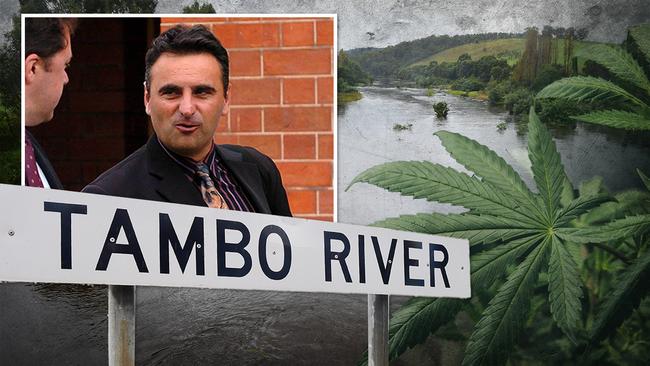
Andrew Rule
Don't miss out on the headlines from Andrew Rule. Followed categories will be added to My News.
The Tambo is a crooked river beside a crooked road, the highway winding into the mountains. Beside the river there once lived a crooked man.
Back in his 20s, this man had swum the deep and deadly Danube under fire to escape from ruined Romania to dangerous Yugoslavia. He made it but hundreds more did not.
In Australia, the hardy Romanian refugee embraced capitalism and made himself a new life. First on one side of the law, then on the other.
Well before he was arrested at the spotless shed he called home, one of his Tambo Valley neighbours saw something intriguing while canoeing upstream from Bruthen.
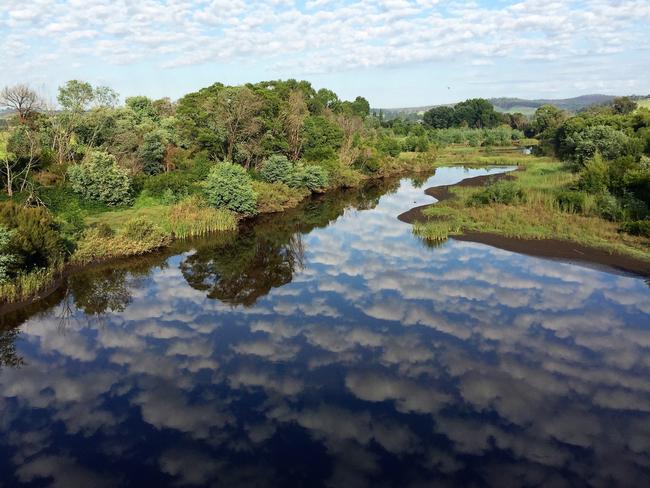
The upper Tambo flows fast if water is hitting the catchment. By the time canoeists glimpse something on the bank, they are past it. As the neighbour paddled by, she spotted something black snaking from the bush into the river.
It was a polythene pipe, the sort farmers use for irrigation. Why it was there in the East Gippsland wilderness was something the paddler didn’t think about until much later, when Bairnsdale police forced their way into that remote patch of riverbank and found signs of a remarkably industrious illegal enterprise.
Someone with time, patience and painstaking ingenuity had set up an irrigated cannabis plantation on a secret plot far enough from the nearest track that he’d used a raft to bring in his gear on the river.
It turned out the proud grower had shot a detailed film of his operation that would not only be used in court to convict him, but later shown to international police by a forensic botanist to illustrate how well a diligent crook could grow illegal plants hidden in rugged country.
As one impressed crime reporter wrote after the grower’s 2004 trial, the plantation was the work of a “green thumb who made a Burke’s Backyard-style instructional video for dope growers about his own $1.5 million crop.”
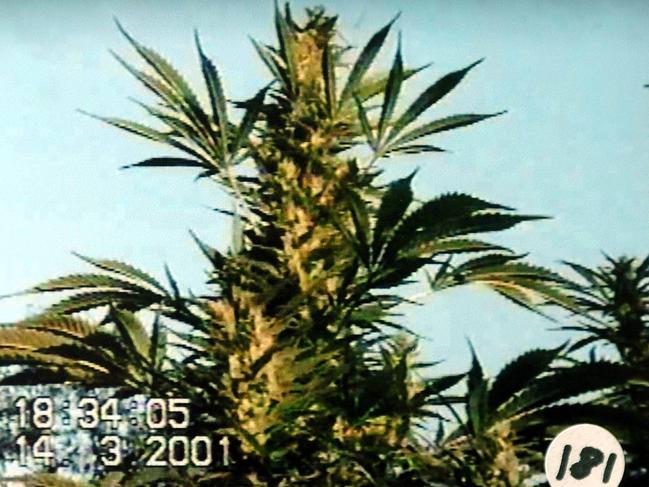
The man dug rice-paddy type beds to irrigate, set out to catch maximum sunlight. He used a two-stroke pump to pump water to them. His plants grew so tall, more than 4m, that he cut hundreds of saplings as stakes to stop them toppling under their own weight.
Police who worked on the case in 2004 called the crop grower by the name he gave himself on the video: “Nick the river man” was easier than his full name, Gelu Nicolae Pucea.
Not that anyone around Bruthen bothered with his real name, either. “Nick” was enough. Sometimes “Flash Nick.”
The observant canoeist who lived nearby has mixed feelings about the man whose immaculate shed dwelling stood out in a district where most weren’t.
She recalls Nick looking a lot like a flashy crook trying to blend in, combining heavy gold chains with a lot of new R.M. Williams gear. But he was also resourceful, hardworking and disciplined.
Men found him interesting but some women were uncomfortable around him, she recalls. But everyone agreed that his patch of cleared country north of Bruthen next to the forest was a model for off-the-grid living.
“You could have eaten off the floor,” a policeman said later.
Everything Nick Pucea did was neat, clean and well-thought out. His tough upbringing had ingrained peasant subsistence skills. He could do most things with hand tools and a minimum of money, not that he disliked money.
He built a sluice-box to prospect for alluvial gold in local streams and sold it to cash buyers in Melbourne.
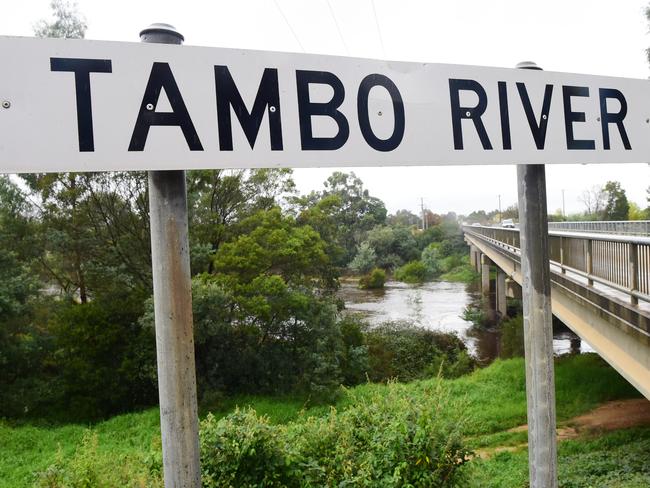
He kept bees for honey and grew vegetables to eat and barter. He made excellent furniture from bush timber. And, something his neighbours remember well, he distilled excellent spirits — schnapps, vodka and brandy — from various fruits.
He shot rabbits for the pot and trapped carp to make liquid fertiliser to feed not only his vegetable garden but the extraordinary cannabis plants at his secret plot beside the Tambo, more than 10km upstream.
It’s possible he believed some of his own longwinded talk about the benefits of cannabis for its medicinal qualities. But Judge Geoff Chettle formed the view that the accused had sold the bulk of the “heads” from his 258 over-size plants for the usual reason: to turn bagloads of green stuff into fists full of cash.
Other people seemed to agree. There were reports of someone appearing at his pristine shed to pull walls apart looking for hidden cannabis or cash. A new occupant later dug up a barrel containing a .38 pistol, shoulder holster, nunchuks and a throwing star.
The other buried barrel, the one police found at the plantation campsite, contained not only the damning video but photographs, cannabis seeds and a diary.
If Nick Pucea learned a lesson from serving a minimum of three years jail, it was that he shouldn’t film incriminating material, complete with his voice, and “hide” it where police might find it.
The court heard that Pucea was the only child of Romanian parents who had suffered under the tyrannical rule of Romania’s dictator Nicolae Ceaușescu in the 1970s and 1980s.
He had studied forestry and done two years compulsory military training but communist Romania was crumbling into chaos. Pucea was one of thousands to swim the Danube under fire from border guards, a lethal escape route which cost countless lives before Ceaușescu’s dictatorship was overthrown in 1989.
In Yugoslavia, just before it broke up into warring states, Pucea had been imprisoned in appalling conditions, he claimed, before managing to migrate to Australia in 1989.
Victorian police noticed he seemed completely unfazed at being locked up before his 2004 trial on nine charges including cultivating a commercial quantity of drugs and trafficking cannabis.
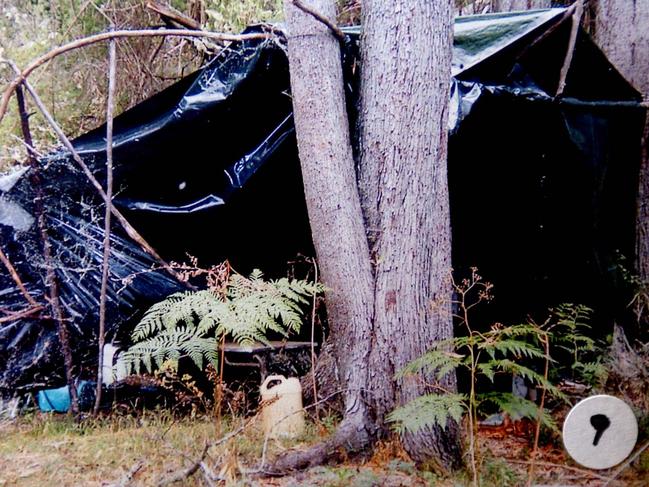
Key evidence was the three-hour video that police had recovered from a buried barrel at his semipermanent campsite next to the cannabis plantation, where he had a sleeping tent, food storage tent and drying hut.
The video, screened in the County Court at Bairnsdale, detailed every stage of growing a crop from picking a site to choice of fertiliser.
It begins with Pucea starting to film in late 2000, introducing himself as “Nick the Riverman.”
“In this film I would like to show you how to successfully grow pot or marijuana in a place such as this,” he says for the camera, his face obscured.
“So let’s get started, we have a lot of work to do.”
Pucea devoted himself to the crop, camping nearby for long periods over the eight-month growing season.
“You will not see me in the video for mainly law enforcement reasons,” he says at the start. “But you will hear my voice all along the way.”
At one point in the film Pucea talks about plot preparation, satirising TV cooking shows with the line “Here’s a plot I prepared earlier.”
The video charts the growth of the 258 plants, including footage of mature plants at more than 4m high. “With a bit of luck and good weather I’ll make some good money,” he says in a revealing moment.
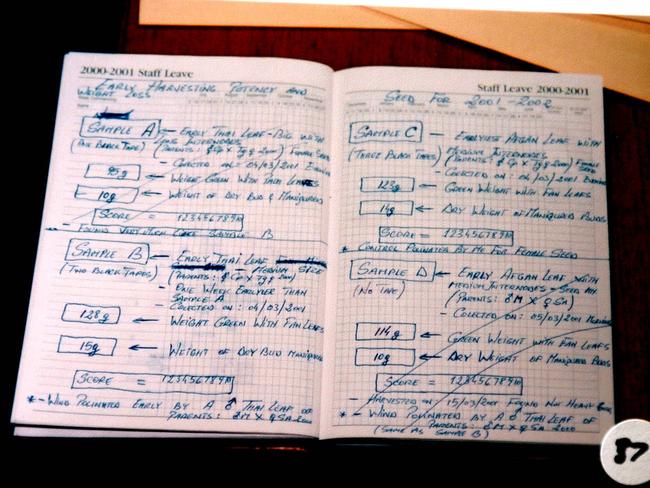
Pucea detailed every aspect of the plant’s development, even problems with brown rot.
“It is heartbreaking,” he says about watching one plant die.
A prosecutor told the court the dried cannabis might have brought up to $1.5 million “on the street” but it was more likely Pucea had sold it for about $500,000 wholesale.
The court heard that detectives found the crop site in November 2003 after a tip-off. The cannabis was gone but they recovered the buried video, diary and seeds. Pucea was arrested the following April.
His lawyer told the court his client had trained in horticulture and forestry before fleeing Romania and suggested he was a respected Bruthen community member who sometimes did gardening at a local church.
Church gardening was more likely than the lawyer’s other contention: that his client hadn’t sold the 258 cannabis plants but had left them to rot after having a change of heart.
In prison, Pucea studied arboriculture and, for a while after his release, worked for a power company lopping tree branches.
He also registered an excavation business at an address near Bunyip east of Melbourne. His first wife had left him within a year of joining him in Australia in 1992, but he maintained a close relationship with his daughter.
In 2008 he returned to Romania and married a childhood friend, who lived with him for a while at Bruthen before returning to Romania to look after her mother during the Covid pandemic. She did not come back.
Times change but it seems Pucea didn’t. By 2022, he was in his late 50s, unemployed, broke and homeless. He circled back to Bruthen, the district he’d first gone to in the 1990s.
He no longer had the immaculate shed to live in. He stayed in an illegal bush camp at White Rocks Track at Double Bridges, near the scene of his crime of 20 years earlier.
On December 7, 2022, government officers arrived and found a tent, scooter, campfire, Esky and clothes line. They also found 188 cannabis seedlings in pots near the river.
Pucea wasn’t there that day. But when police turned up next morning, he was standing outside his tent. They found his ute, a loaded .22 rifle and ammunition.
And that is how the river man came to be back in court last spring, missing the height of the crop-growing season.
Judge Dempsey acknowledged that the accused man was a dedicated father and grandfather, resourceful with a strong work ethic.
But, the judge added, “You also have an almost unshakeable evangelical-like attitude towards the healing and medicinal properties of cannabis — cannabis oil especially.”
This was a reference to a rambling police interview of 150 pages and 1151 questions.
“Not all of the answers are coherent, and it seems police had a very difficult time keeping you focused on the offending at hand,” the judge noted.
The river man seemingly persuaded all concerned that he is an obsessive eccentric. Which was far from crazy, it seems.
The judge concluded that, given the circumstances and guilty plea, he would impose a sentence of 17 months with a minimum of 10 months — which would be exactly cancelled out by the 321 days Pucea had already spent in custody.
Result: he walked out of Bairnsdale courthouse a free man. This time, maybe he should stick to making bootleg spirits.


